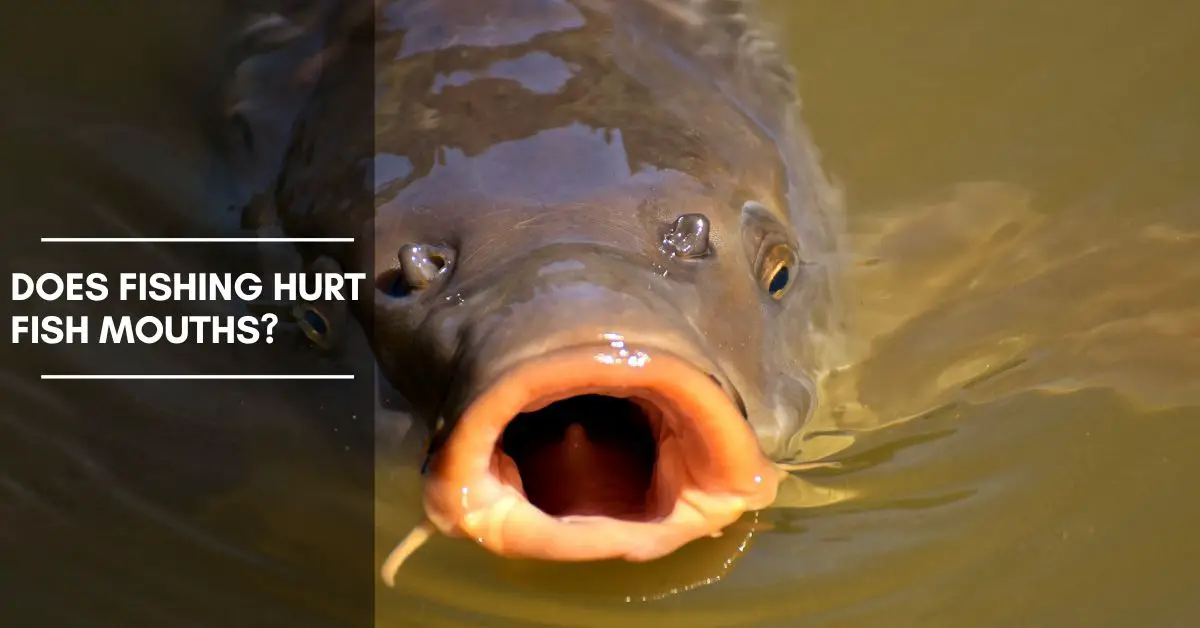Fishing is a popular hobby for many people, but have you ever stopped to think about whether or not it causes harm to the fish?
In this article, I will dive deep into whether fishing hurts fish mouths. We will discuss different types of fishing, how fish respond to being caught, and the measures you can take to minimize potential harm. By the end, you’ll have a clearer understanding of the impact your fishing has on our aquatic friends.
The short answer to whether fishing hurts fish mouths is that it depends on the type of fishing, the fish species, and how the fish is handled after being caught. While some fish might experience minimal discomfort, others can suffer significant injuries.
If you’re interested in learning more about the effects of fishing on fish and how you can enjoy this pastime responsibly, keep reading to explore this topic in detail.
Types of Fishing and Their Impact on Fish
Recreational Fishing
Recreational fishing is a popular pastime that can include catch-and-release, as well as harvesting fish for consumption. The impact on a fish’s mouth depends on the type of hook used and how the fish is handled during the process.
Fly Fishing
Fly fishing often uses barbless hooks that minimize damage to a fish’s mouth. These hooks are designed to be easily removed, which reduces the potential for injury.
Commercial Fishing
Commercial fishing methods, like trawling and longlining, can cause significant damage to fish mouths and bodies due to the sheer volume of fish caught and the equipment used. While these methods are not typically used by recreational anglers, they are worth mentioning to understand the wider impact of fishing on fish populations.
Fish Anatomy and Mouth Injuries
Fish Mouth Structure
A fish’s mouth is designed to catch and hold prey. Depending on the species, their mouths can be quite sturdy or delicate. Some fish, like bass and catfish, have strong, muscular mouths, while others, like trout, have softer, more delicate mouth structures.
Common Mouth Injuries
When a fish is hooked, it can sustain various mouth injuries, such as torn lips, punctured mouths, and damaged jaw structures. These injuries can range from mild to severe, depending on the fish species and how the hook is removed.
Minimizing Harm When Fishing
Choose the Right Hook
Using barbless or circle hooks can reduce the likelihood of causing severe injuries to fish mouths. These hooks are designed to minimize damage and are easier to remove than traditional hooks.
Proper Handling Techniques
When handling a fish, it’s essential to wet your hands first to minimize damage to their protective slime layer. Use a gentle but firm grip and avoid touching the gills or squeezing the fish.
Quick and Safe Hook Removal
When removing a hook, use needle-nose pliers or a hook removal tool to minimize stress on the fish. Hold the fish steady and carefully remove the hook without causing additional damage to the mouth.
Conclusion
In conclusion, fishing can cause harm to fish mouths, depending on the fishing method, hook type, and handling techniques. By using responsible practices, such as using barbless hooks, proper handling, and quick hook removal, anglers can minimize harm and enjoy fishing responsibly.
FAQs
- Do all fish species experience the same level of pain when hooked?
No, different fish species have varying mouth structures, which can affect their sensitivity to being hooked.
- Is catch-and-release fishing better for fish than harvesting them?
While catch and release can reduce the overall impact on fish populations, it’s essential to practice proper handling and hook removal techniques to minimize harm.
- What should I do if a fish swallows the hook?
If a fish swallows the hook, it’s best to cut the line as close to the mouth as possible and release the fish. Often, the hook will rust and disintegrate over time, causing minimal harm to the fish.
- Are there any specific regulations in place to protect fish from mouth injuries?
Some locations have regulations that require the use of specific types of hooks or mandate catch and release for certain fish species. It’s crucial to familiarize yourself with local regulations before heading out to fish.
- How can I ensure I’m practicing responsible fishing?
To fish responsibly, use appropriate gear, such as barbless hooks, handle fish carefully, and follow proper hook removal techniques. Additionally, educate yourself about local fishing regulations and conservation efforts to protect fish populations.

